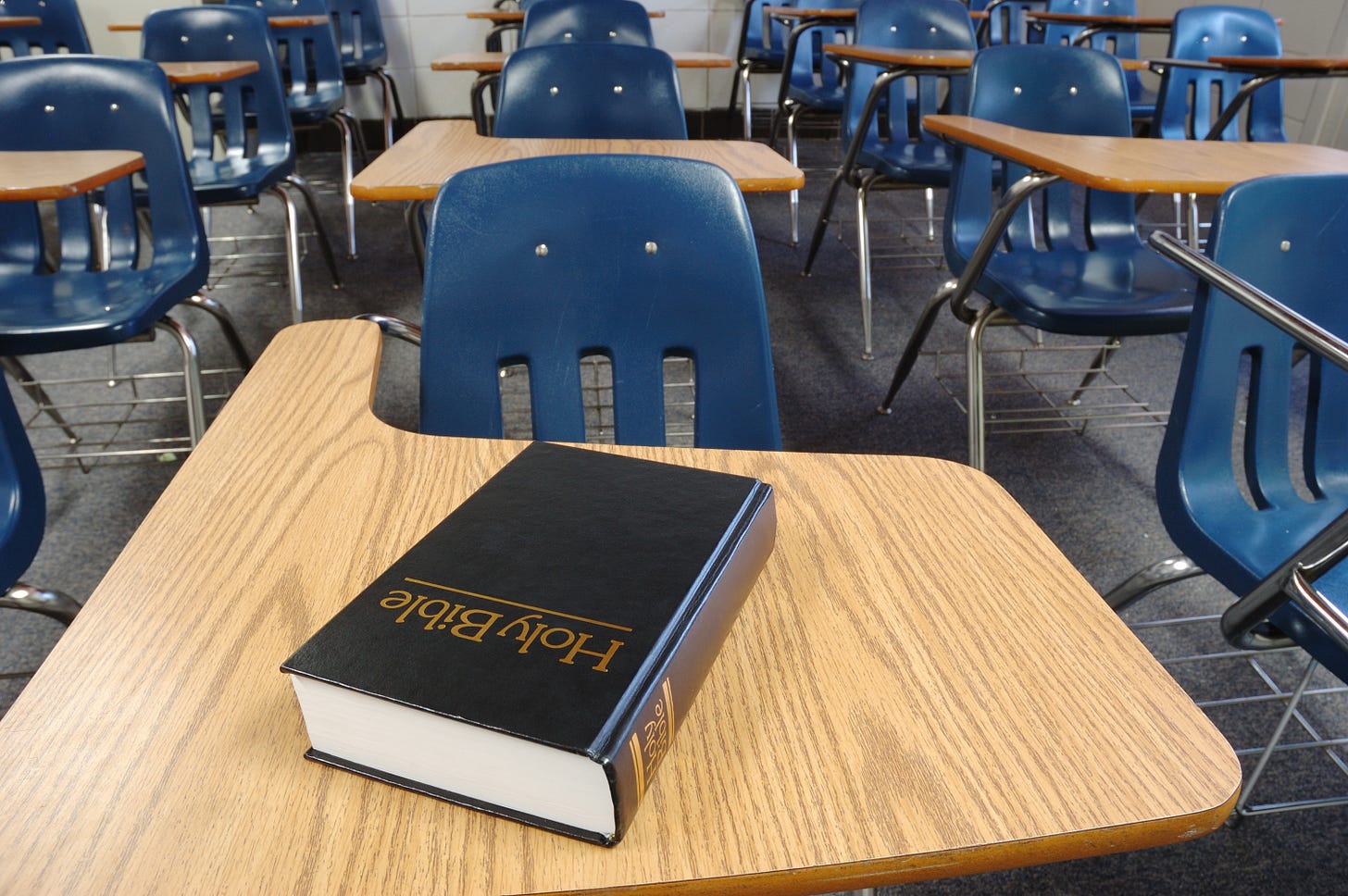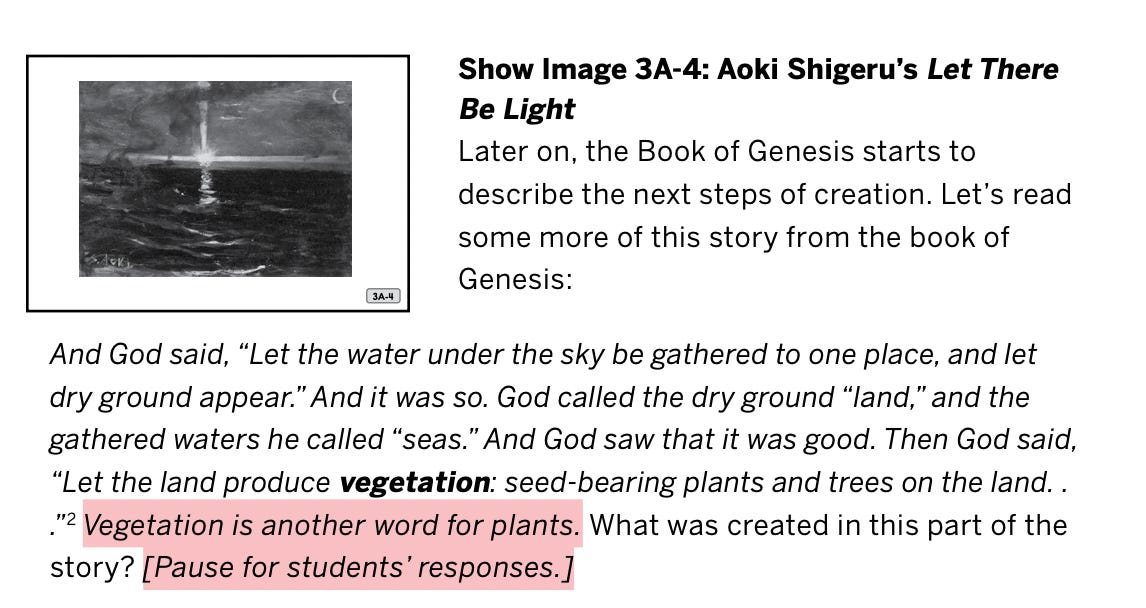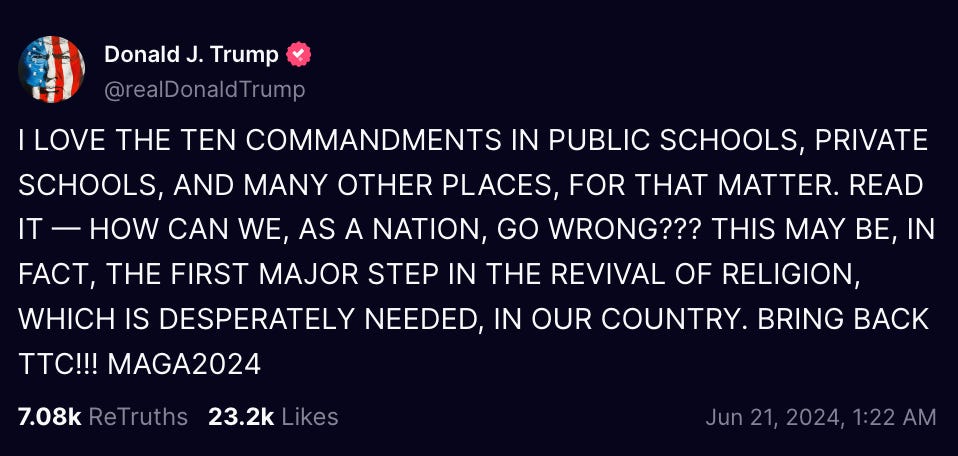The religious indoctrination of America's public school students
In states across the country, educational officials are seeking to incorporate Christianity into public school curriculums. While understanding religion is part of a well-rounded education, these efforts have been controversial because they emphasize Christianity over other faiths and give young students the impression that theological concepts are facts. Parents, including many Christians, are concerned that these lessons are less about educating students than indoctrinating them.
In Texas, for example, the state school board voted on Tuesday to preliminarily approve a new curriculum that introduces students to Jesus and Christianity, beginning in kindergarten. The K-5 curriculum created by the state, known as Bluebonnet, has been derided by religious studies experts and others. These critics say "the curriculum’s lessons allude to Christianity more than any other religion, which… could lead to the bullying and isolation of non-Christian students, undermine church-state separation and grant the state far-reaching control over how children learn about religion."
The Bluebonnet curriculum, for example, teaches kindergarten students about the biblical story of Genesis and how it has inspired various works of art. Students are asked "to identify the order of creation." Four-year-olds may come away from the lesson believing that it is a fact that God created the world in six days.
A fifth-grade lesson about Leonardo da Vinci’s The Last Supper contains "a lengthy quote from the Gospel of of Matthew" and asks students to consider "how the disciples may have felt upon hearing Jesus telling them about his betrayal and death.” Another section of the fifth-grade curriculum emphasized that pre-Civil War abolitionists “relied on a deep Christian faith” without mentioning that many Southerners justified slavery on biblical grounds.
While other religions are mentioned periodically, a review of the Bluebonnet curriculum by the Texas Freedom Network, an organization that promotes religious freedom, found it "verges on Christian proselytism insofar as its extensive, lopsided coverage of Christianity and the Bible suggests that this is the only religious tradition of any importance."
While the Bluebonnet curriculum is optional, Texas schools that adopt it receive an additional $60 per student. So, there is a substantial financial incentive to substitute existing lessons for the new Christianity-heavy curriculum.
The curriculum received preliminary approval by the Texas State Board of Education on a vote of 8-7. Three Republicans joined four Democrats in opposing the curriculum. That narrow margin was only secured because Governor Greg Abbott (R) hand-selected a Republican, Leslie Recine, to fill a seat vacated by a Democrat who won election to the Texas House. Recine was installed days before the general election. The voters elected Democrat Tiffany Clark to a full term. The final vote will be this Friday, before Clark takes office.
What is happening in Texas is not an anomaly. There are several other states actively integrating Christianity into public school curriculums.
Oklahoma school superintendent mandates public schools "incorporate the Bible"
In June, Oklahoma State Superintendent Ryan Walters (R) announced a state requirement for public schools “to incorporate the Bible, which includes the Ten Commandments, as an instructional support into the curriculum” in grades five through 12.
Following the announcement, multiple schools said they would not comply and two lawsuits were filed against Walters. In October, a group of parents, teachers, and ministers represented by the Oklahoma ACLU and other civil rights groups filed a lawsuit with the Oklahoma Supreme Court seeking to halt Walters’ order and stop him from spending $3 million on Bibles for use in public schools.
The lawsuit mentions that Walters’ original proposal required that the Bibles also contain the Constitution, the Bill of Rights, the Declaration of Independence, and the Pledge of Allegiance. One of the only eligible Bibles under this requirement is a $60 edition known as the “Trump Bible” that has been endorsed by the president-elect. The state Department of Education later changed the requirements and postponed the search for a supplier after public backlash.
On the day the lawsuit was filed, Walters wrote on X that he would “never back down to the woke mob,” arguing that “understanding how the Bible has impacted our nation … was the norm in America until the 1960s and its removal has coincided with a precipitous decline in American schools.”
Last week, Walters sent an email to school officials instructing them to show a video announcing his new Office of Religious Liberty and Patriotism to all students. “For too long in this country, we’ve seen the radical left attack individuals' religious liberty in our schools,” Walters says in the video. “We’ve also seen patriotism mocked, and a hatred for this country pushed by woke teachers unions.” Walters ends with a prayer for “President Donald Trump and his team as they continue to bring about change to the country.” Multiple school superintendents stated that they would not show the video to students.
The state Department of Education also announced last week that it had purchased over 500 bibles for AP Government classrooms across Oklahoma. In a video, Walters touts Oklahoma for being “the first state to bring the Bible back to the classroom.” In the video, Walters holds up what appears to be a “Trump Bible” and says that Bibles “just like this” will be available in classrooms. According to a spokesperson for Walters, the purchase of 500 Trump Bibles cost $25,000, the Oklahoman reported.
Louisiana mandates every classroom display the Ten Commandments
This year, the Louisiana legislature passed a law requiring "public schools to display the Ten Commandments in all classrooms beginning in 2025." It is the first state to impose such a requirement in 40 years. Trump called the requirement "desperately needed."
Last week, a federal judge disagreed, finding the law unconstitutional. Judge John deGravelles found that the law is "not neutral toward religion" and "coercive to students." He wrote that "for all practical purposes, they [students] cannot opt out of viewing the Ten Commandments when they are displayed in every classroom, every day of the year, every year of their education." It is likely the beginning of a long legal battle that could end up in the Supreme Court.
Similar bills have been introduced in Arizona, Georgia, Oklahoma, South Carolina, Utah, and West Virginia.





It's not just Christianity, but a particular strand of Christianity that isn't shared by a majority of people who profess Christian beliefs. How is that different that radical Wahabists who have spent years coopting Islam and twisting its perception into an unrecognizable and violent religion.
It is clear that the separation of church and State is established law. I have belonged to Americans United for Separation of Church and State for many years. I suggest that all of us support and join one of the many organizations that believe that this is established Constitutional law and will take that fight to court and challenge this insanity. We must fight this take over by Christians trying to pervert and destroy a basic tenant of our law. Don’t let this happen!